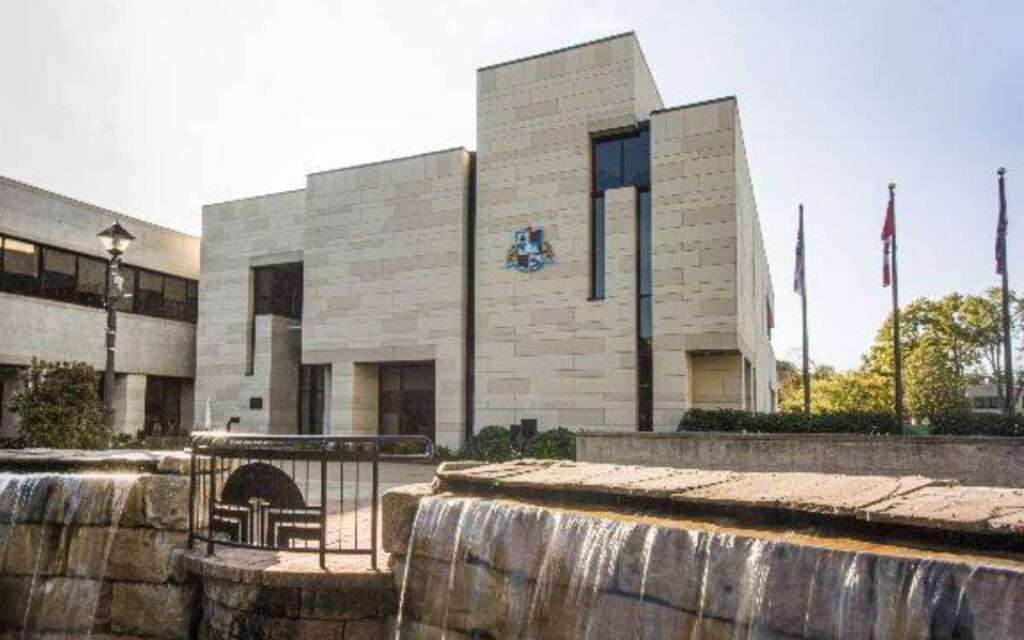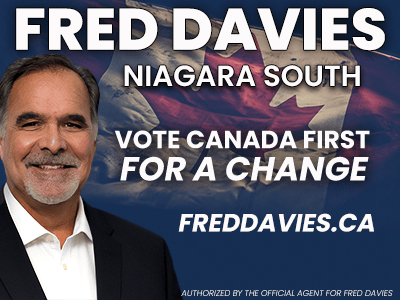
The proposed property tax increase is much higher than Council requested. Pictured: Niagara Falls City Hall. Photo Credit: City of Niagara Falls/Facebook.
Residents of the City of Niagara Falls will see property taxes rise significantly if city staff have their way.
Earlier this week, staff released their proposed property tax levy supported budget for 2025. It includes a 7.6 per cent property tax increase, which would increase the average household’s property tax bill by roughly $120, according to city staff.
That $120 does not factor in Niagara Region’s 9.6 per cent property tax increase, which will be applied to the upper-tier portion of homeowners’ property tax bills. Niagara Region has already finalized its 9.6 per cent increase, which will cost the average homeowner more than $200 in additional property taxes compared to 2024.
The proposed Niagara Falls budget will be officially presented at a Jan. 21 Council meeting. Council and the Mayor still have the ability to amend the budget and lower the property tax increase to try to ease the burden on residents. City staff make budget proposals, but they do not determine the final budget outcome.
According to a news release issued by city staff, there are three main reasons why this year’s property tax increase is so significant.
The first major issue is labour costs. Because of wage increases, more compensation for firefighters and an intention to hire more staff to deal with the overall cleanliness of the city, labour costs are expected to rise by $6.3 million in 2025.
Homelessness, mental health, and drug addiction are identified as key issues, which are driving additional costs when it comes to cleaning up the city. City staff say the funds requested are less than what is actually needed, but a higher amount was not requested to try to account for issues facing taxpayers.
The second major issue has to do with software costs. Staff want to invest in additional cyber security measures following cyber-attacks on nearby municipalities, including the major attack Hamilton went through in 2024. New cyber-security software is expected to cost $1.2 million.
City staff acknowledged in their release that this new cost is high, but argue that capital costs will go down in future years because of this one-time investment.
The third major issue is fleet replacement. An additional $1.1 million will be spent on replacing the city’s aging fleet in 2025, should the proposed budget be approved.
City staff argue property taxes would have to increase by 3.9 per cent simply to keep up with inflation. The proposed additional spending is responsible for the extra 3.7 per cent.
Although staff argue in their report that “the budget is balancing taxpayer affordability in the near term with taxpayer affordability over the long term,” a 7.6 per cent lower-tier property tax increase is hardly affordable. Combined with the 9.6 per cent regional increase, the average Niagara Falls homeowner is looking at a property tax increase of over $320.
City staff were originally directed to by Council to draft a budget with a levy increase of between 3 per cent and 5.5 per cent. The proposed 7.6 per cent increase significantly exceeds Council’s directive.
This may lead to Council directing city staff to reduce spending in order to reduce the overall property tax increase. The proposed 7.6 per cent is significantly higher than the 2025 property tax increase in Welland (3.95 per cent) and St. Catharines (2.82 per cent), but is much less than what has been proposed in Niagara-on-the-Lake (14.4 per cent).
After the proposed staff budget is presented to Council on Jan. 21, Council will have an opportunity to debate it and propose changes.

Jay Goldberg is the Ontario Director at the Canadian Taxpayers Federation. He previously served as a policy fellow at the Munk School of Public Policy and Global Affairs. Jay holds a Ph.D. in Political Science from the University of Toronto.








